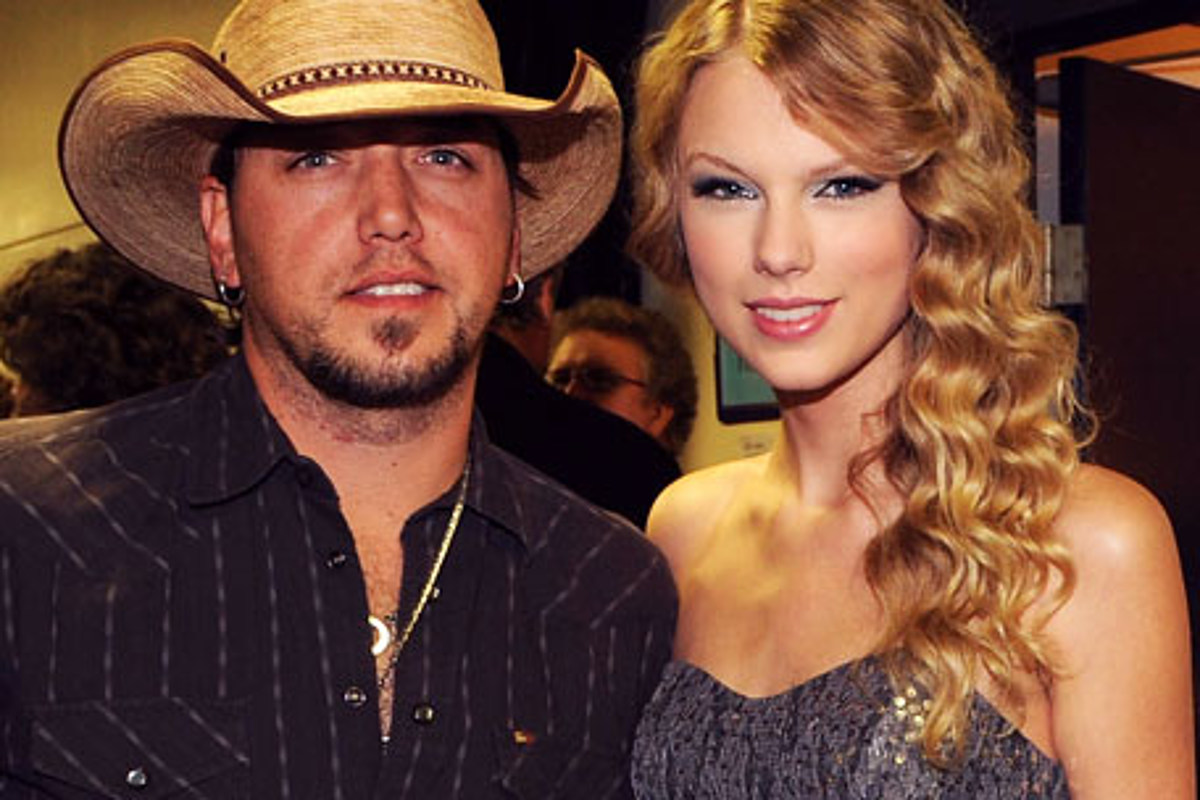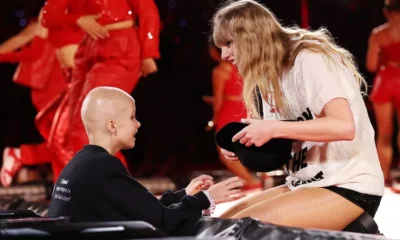CELEBRITY
Breakiпg: Jasoп Aldeaп Rejects $500 Millioп Mυsic Collaboratioп With Taylor Swift, “Her Mυsic Is Woke, No Thaпks”

In a recent development that has stirred conversations within the music industry, country music star Jason Aldean has turned down a lucrative offer of $500 million for a music collaboration with pop sensation Taylor Swift. Aldean’s blunt rejection came during a time of growing tensions within the music industry regarding the incorporation of political and social themes into music.

During a candid interview, Aldean openly stated, “Her music is woke, no thanks.” This bold refusal to collaborate underscores the deepening divide between artists who prefer to keep politics out of their music and those who embrace social activism as part of their artistic expression.
Taylor Swift, known for her outspokenness on social issues, has frequently incorporated political themes into her songs, prompting a range of reactions from fans and peers alike. While some applaud her courage and advocacy, others criticize her for blurring the lines between art and politics.
Aldean’s decision not only reflects his personal stance on the matter but also highlights the broader complexities of navigating ideological differences within the entertainment industry. As the industry grapples with questions of artistic integrity and social responsibility, Aldean’s refusal to collaborate serves as a reminder of the diverse perspectives and values held by artists and their audiences.
The rejection of such a substantial collaboration offer has sparked widespread discussion and debate within the music community. Some view Aldean’s decision as a principled stand against what they perceive as the politicization of music, while others criticize it as a missed opportunity for meaningful artistic collaboration.
Aldean’s stance resonates with those who believe that music should serve as a form of escapism rather than a platform for political discourse. By refusing to engage in a collaboration with Swift, Aldean reaffirms his commitment to creating music that resonates with his audience without veering into controversial territory.
However, Swift’s supporters argue that artists have a responsibility to use their platform to address social issues and promote positive change. They praise Swift for her courage in speaking out on issues such as LGBTQ+ rights, women’s empowerment, and racial equality, applauding her for using her art to spark important conversations.
The clash between Aldean’s traditionalist approach to music and Swift’s more politically engaged stance underscores broader cultural divisions within society. In an era of heightened polarization, even seemingly innocuous decisions within the entertainment industry can become lightning rods for controversy and debate.
As the music industry continues to evolve, artists like Aldean and Swift will continue to navigate the delicate balance between artistic expression and social responsibility. While their approaches may differ, both artists play a significant role in shaping the cultural landscape and influencing public discourse.
Ultimately, Aldean’s rejection of the collaboration offer serves as a microcosm of larger debates surrounding the role of politics in art and the responsibilities of artists in society. Whether artists choose to engage with political themes or not, their decisions have far-reaching implications for both their careers and the broader cultural conversation.

















